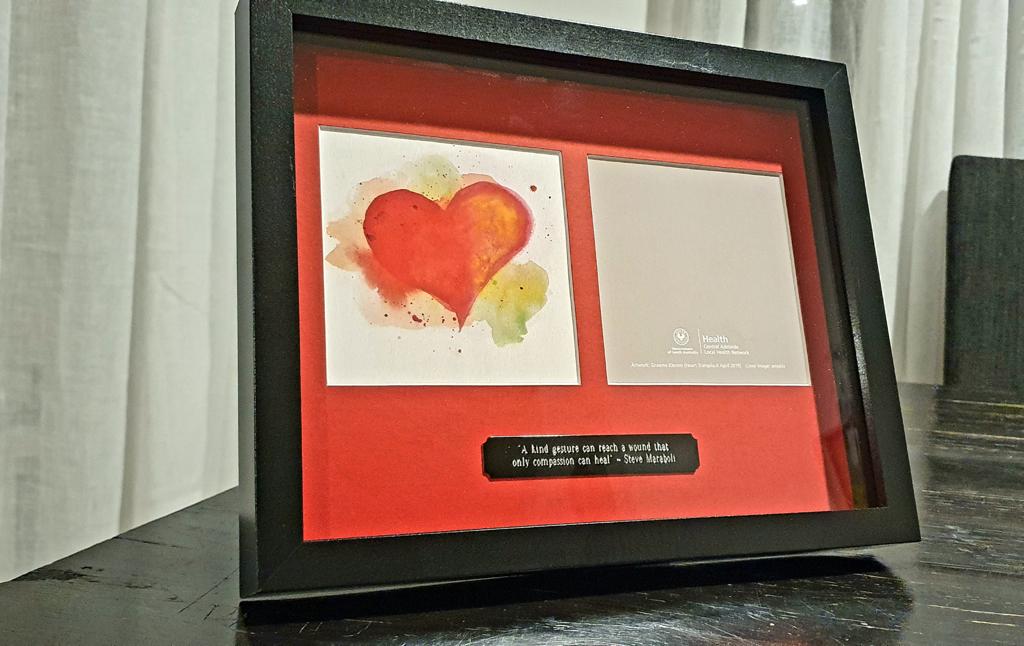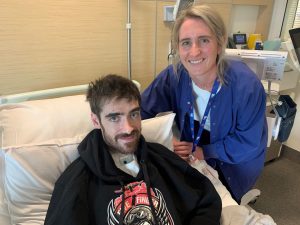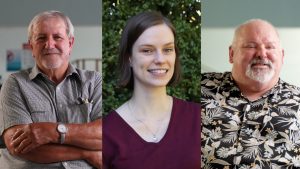After becoming critically ill and needing a battery-powered device to keep him alive for 12 months, Graeme Klemm “couldn’t be happier,” 18 months on from receiving a new heart.
It’s been a long road for the 57-year-old father of three. Now after getting through the numerous key checks in the first 12 months, he wants to give back to the service that has helped him.
The graphic designer worked with Central Adelaide’s Heart Failure Service team to design artwork for a card that staff can give patients and families when needed.
“I had a need for a sympathy card for a patient going through a difficult outcome following a transplant,” Graeme explains.
“I went through five or six places and couldn’t find an appropriate card for a male.
“This project to help with a card was a great opportunity to do something (to help the service and other patients).”
The Heart Failure Service is made up of a team of cardiologists, specialist nurses, health psychologist and allied health support patients to manage their condition, avoid hospital admission and enjoy the best possible quality of life.
Cardiologist Dr Michael Stokes says heart failure is a condition affecting a growing number of Australians, and has a significant mortality rate of around 50 per cent within 5 years.
“We have between 250-300 new referrals to the service each year but only a small number of patients, about 5-10, are referred for transplant,” Dr Stokes said.
“The readmission rate for patients with heart failure is around 20-30 per cent within a month of diagnosis, so our nurses play a crucial role in supporting patients and reducing the likelihood of them being readmitted.”
The Heart Failure Team help people to manage and improve their condition through support with lifestyle including exercise programs at The Queen Elizabeth Hospital and Hampstead Rehabilitation Centre, education, medication, dietary advice and psychological support.
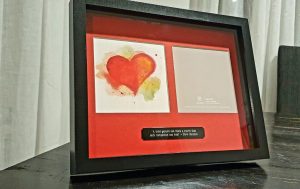
The card designed by Graeme Klemm.
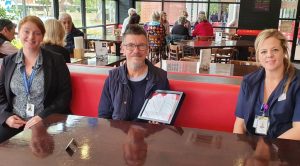
Graeme Klemm with health psychologist Karen Linehan and heart nurse consultant Hayley Surman.
